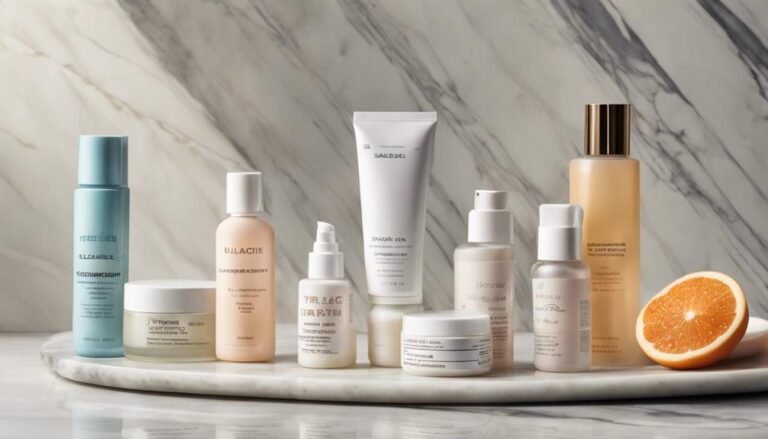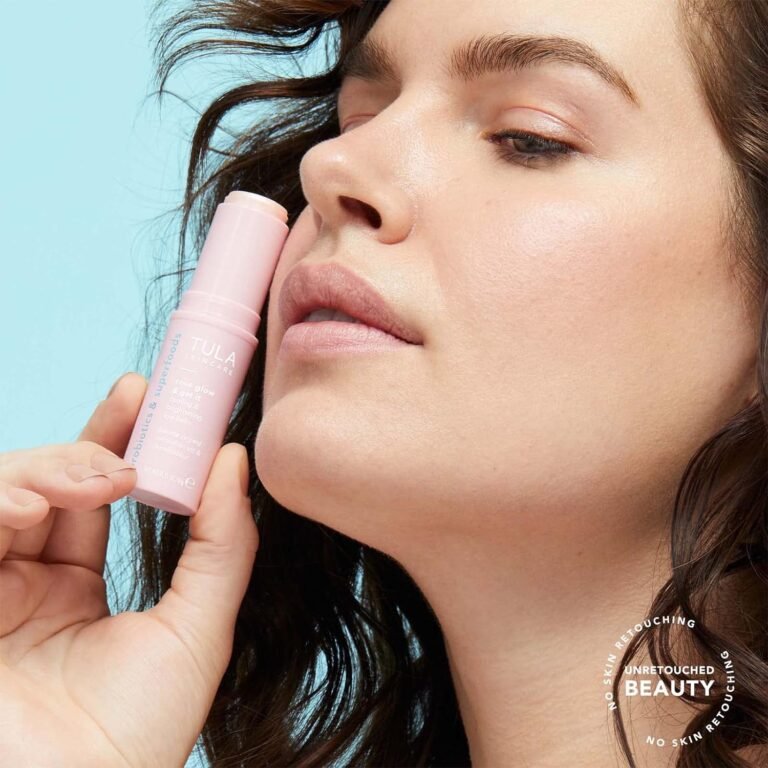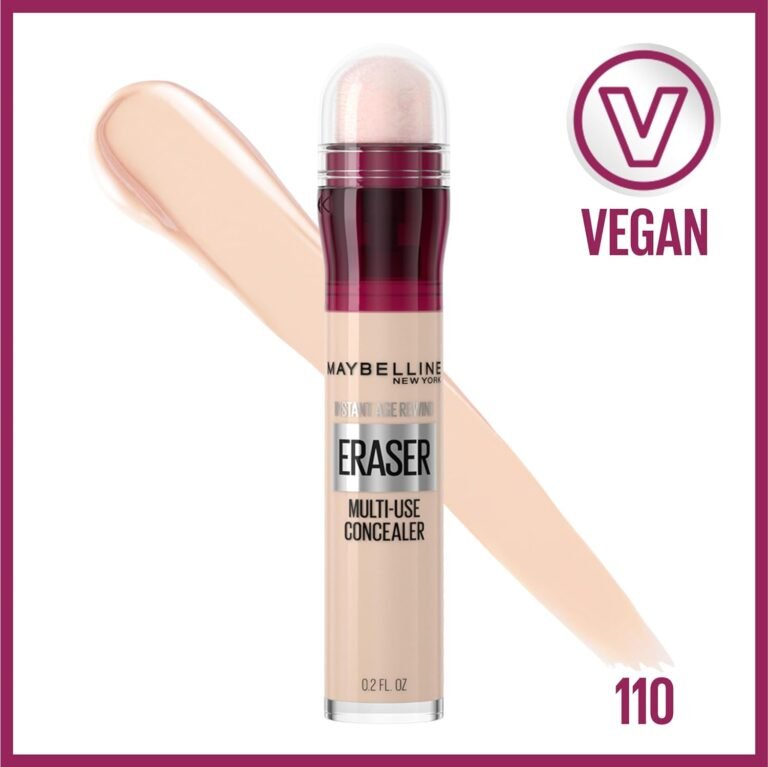Healthy Skin Through Proper Care
You may think achieving healthy skin through proper care is complicated and time-consuming, but it doesn't have to be. By incorporating simple yet effective skincare practices into your daily routine, you can witness significant improvements in the health and appearance of your skin. From understanding the importance of cleansing techniques to discovering the benefits of hydrating your skin effectively, there are key steps you can take to enhance your skincare regimen effortlessly. Stay tuned to uncover practical tips and insights that will transform your approach to skincare and help you achieve radiant, healthy skin.
Key Takeaways
- Establish a consistent skincare routine for healthy skin.
- Choose products with beneficial ingredients and avoid harsh chemicals.
- Cleanse twice daily with gentle products and lukewarm water.
- Hydrate skin with suitable moisturizers and hydrating serums.
- Incorporate antioxidants, omega-3 fatty acids, and regular skin check-ups for optimal skin health.
Importance of Skincare Routines
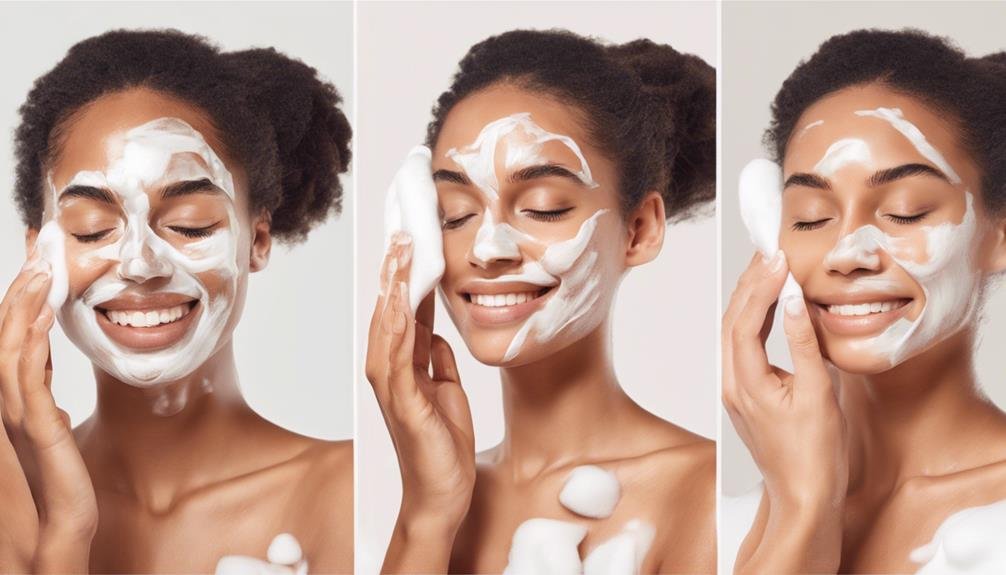
Proper skincare routines play a crucial role in maintaining healthy skin. By establishing a consistent regimen, you provide your skin with the care it needs to stay radiant and youthful. Regular cleansing helps remove dirt, oil, and impurities that can clog pores and lead to breakouts.
Moisturizing is essential to keep the skin hydrated, smooth, and protected from environmental factors. Sunscreen application is a non-negotiable step in preventing premature aging and reducing the risk of skin cancer. Additionally, incorporating exfoliation into your routine helps slough off dead skin cells, promoting cell turnover and revealing a fresh complexion.
Moreover, skincare routines tailored to your specific skin type and concerns can address issues such as acne, dryness, or sensitivity effectively. Consulting with a dermatologist or skincare professional can help you determine the best products and practices suited to your skin's unique needs.
Choosing the Right Products
When it comes to maintaining healthy skin, selecting the right products is paramount. Your skin is unique, so it's essential to choose products that cater to its specific needs. Look for ingredients like hyaluronic acid for hydration, vitamin C for brightening, and retinol for anti-aging benefits.
Consider products that are free from harsh chemicals and fragrances, especially if you have sensitive skin. Reading labels and understanding what each ingredient does can help you make informed choices.
Consulting with a dermatologist or skincare specialist can also guide you in selecting the most suitable products for your skin type. They can recommend personalized products that target your concerns effectively.
Cleansing Techniques for Healthy Skin
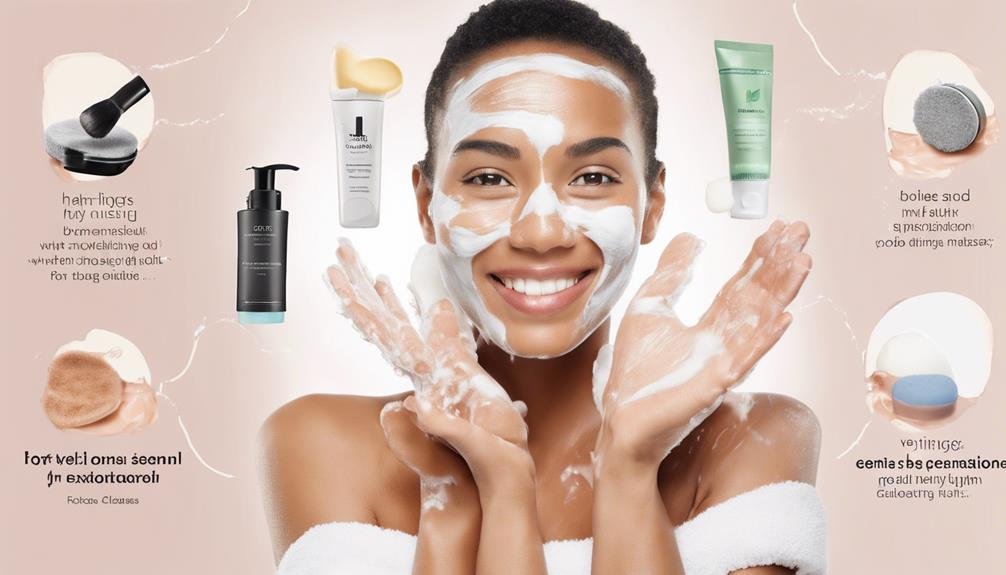
For healthy skin, implementing effective cleansing techniques is crucial. Start by washing your face twice a day with a gentle cleanser suitable for your skin type. Avoid harsh products that can strip your skin of its natural oils. Use lukewarm water to cleanse, as hot water can be drying. Gently massage the cleanser onto your skin in circular motions, focusing on areas with more oil or makeup residue. Rinse thoroughly and pat dry with a clean towel.
When removing makeup, opt for a dedicated makeup remover before cleansing. This helps ensure all traces of makeup are eliminated, preventing clogged pores and breakouts.
Additionally, consider using a cleansing brush or cloth to enhance the effectiveness of your cleanser and promote gentle exfoliation. Remember to change your pillowcases regularly to avoid transferring dirt and oils back onto your skin.
Benefits of Exfoliation
To maintain optimal skin health, incorporating regular exfoliation into your skincare routine can offer a multitude of benefits. Exfoliation involves the removal of dead skin cells on the skin's surface, revealing a fresh layer underneath. This process not only enhances the overall appearance of your skin but also promotes skin renewal and regeneration.
Exfoliation can help unclog pores, prevent acne breakouts, and reduce the appearance of blackheads and whiteheads. By eliminating buildup and congestion, exfoliation supports better absorption of skincare products, making them more effective. Additionally, regular exfoliation can improve skin texture, leaving your skin smoother and softer to the touch.
It is essential to choose the right exfoliation method for your skin type to avoid irritation or damage. Gentle exfoliation is recommended for sensitive skin, while oily skin may benefit from stronger exfoliants. Incorporating exfoliation into your skincare routine 1-3 times a week can lead to healthier, glowing skin.
Hydrating Your Skin Effectively
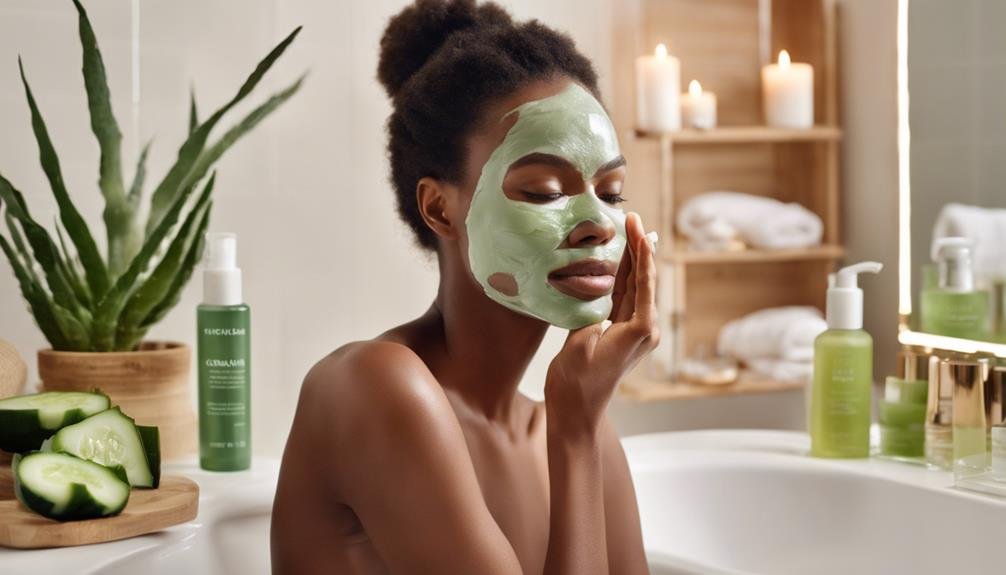
Wondering how to effectively hydrate your skin for a healthy and radiant complexion? Hydration is key to maintaining skin health and vibrancy. To keep your skin adequately moisturized, choose a hydrating skincare routine tailored to your skin type.
Start by selecting a gentle cleanser that won't strip your skin of its natural oils. Follow up with a hydrating toner to balance your skin's pH levels and prepare it for better product absorption.
Incorporating a high-quality moisturizer enriched with ingredients like hyaluronic acid, glycerin, or ceramides can help lock in moisture and prevent water loss throughout the day.
For an extra boost of hydration, consider adding a hydrating serum or facial oil to your routine. These products can provide intense moisture and nourishment, leaving your skin looking plump and dewy.
Remember to drink an adequate amount of water daily to support your skin's hydration from within.
Sun Protection Tips
Maintaining healthy and hydrated skin goes hand in hand with protecting it from the sun's harmful rays. Sun protection is crucial for overall skin health and preventing premature aging. Here are some essential tips to shield your skin from the sun:
- Apply sunscreen daily: Choose a broad-spectrum sunscreen with SPF 30 or higher and reapply every two hours, especially when outdoors.
- Seek shade: Limit direct sun exposure, especially during peak hours between 10 a.m. and 4 p.m., when the sun's rays are strongest.
- Wear protective clothing: Opt for lightweight, long-sleeved shirts, wide-brimmed hats, and sunglasses with UV protection to safeguard your skin and eyes.
- Stay hydrated: Drink plenty of water to keep your skin hydrated from within and help maintain its natural protective barrier.
Understanding Your Skin Type

Ever wondered why understanding your skin type is crucial for effective skincare routines and product selection? Your skin type plays a significant role in determining which products will work best for you and how you should care for your skin. There are five main skin types: normal, dry, oily, combination, and sensitive.
Normal skin is well-balanced, with few imperfections and small pores. Dry skin often feels tight and may appear flaky. Oily skin tends to be shiny with enlarged pores and is prone to acne. Combination skin features both dry and oily areas on the face. Sensitive skin is easily irritated and may react to certain products or environmental factors.
Managing Stress for Skin Health
To effectively manage stress for optimal skin health, it's essential to understand the significant impact stress can have on your skin's overall condition. Stress can trigger various skin issues such as acne breakouts, eczema flare-ups, and dull complexion.
Here are some practical tips to help you manage stress for healthier skin:
- Practice Mindfulness: Engage in activities like meditation or deep breathing exercises to reduce stress levels.
- Get Adequate Sleep: Aim for 7-9 hours of quality sleep each night to allow your skin to repair and regenerate.
- Exercise Regularly: Physical activity helps to release endorphins, which can improve your mood and reduce stress.
- Maintain a Healthy Work-Life Balance: Set boundaries, prioritize self-care, and make time for activities you enjoy outside of work to reduce stress levels.
Diet and Its Impact on Skin

Understanding the impact of diet on your skin is crucial for maintaining healthy and radiant skin. What you eat plays a significant role in the health and appearance of your skin. A balanced diet rich in fruits, vegetables, whole grains, and lean proteins provides essential nutrients that support skin health.
Foods high in antioxidants, like berries, leafy greens, and nuts, help protect your skin from damage caused by free radicals. On the other hand, a diet high in processed foods, sugars, and unhealthy fats can contribute to skin issues such as acne and premature aging.
Hydration is also key for healthy skin. Drinking an adequate amount of water helps to flush out toxins and keeps your skin hydrated and supple. Additionally, omega-3 fatty acids found in fish, flaxseeds, and walnuts can help reduce inflammation and keep your skin looking youthful.
Incorporating Antioxidants in Skincare
When it comes to skincare, incorporating antioxidants is essential for maintaining healthy and vibrant skin. Antioxidants play a crucial role in protecting the skin from damage caused by free radicals and environmental stressors. By integrating antioxidants into your skincare routine, you can promote skin health and combat signs of aging effectively.
Here are some key benefits of incorporating antioxidants in your skincare regimen:
- Neutralizing Free Radicals: Antioxidants help neutralize free radicals, which can cause premature aging and skin damage.
- Brightening Skin Tone: Antioxidants like Vitamin C can help brighten skin tone and improve overall complexion.
- Enhancing Skin Firmness: Antioxidants such as Vitamin E can aid in maintaining skin elasticity and firmness.
- Reducing Inflammation: Antioxidants like Green Tea Extract possess anti-inflammatory properties that can soothe irritated skin and reduce redness.
Importance of Regular Check-Ups
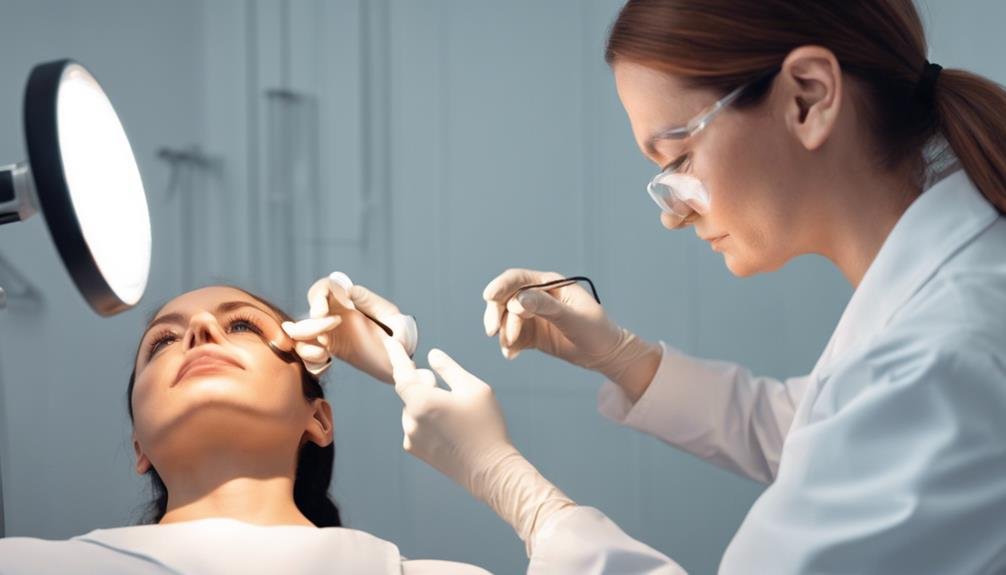
For optimal skin health, regular check-ups with a dermatologist are crucial. Your skin is a vital organ that requires consistent monitoring and care to maintain its health and vitality. Regular check-ups allow dermatologists to assess your skin's condition, identify any potential issues early on, and provide personalized recommendations for your skincare routine. These visits also offer an opportunity to discuss any concerns you may have, such as changes in your skin, new moles, or persistent skin conditions.
During a check-up, your dermatologist will conduct a thorough examination of your skin, looking for signs of skin cancer, early aging, or other skin conditions. They may also recommend specific treatments or procedures to address any concerns and help you achieve your skincare goals.
Developing a Consistent Routine
To maintain the progress made during your regular check-ups with a dermatologist, developing a consistent skincare routine is key to promoting healthy skin. By incorporating daily habits, you can effectively care for your skin and enhance its overall health and appearance. Here are some essential steps to include in your skincare routine:
- Cleansing: Gently cleanse your face twice a day to remove dirt, oil, and impurities that can clog pores and lead to breakouts.
- Moisturizing: Hydrate your skin with a moisturizer suitable for your skin type to maintain its natural moisture balance and prevent dryness.
- Sun Protection: Apply a broad-spectrum sunscreen every day to protect your skin from harmful UV rays and prevent premature aging.
- Healthy Lifestyle Choices: Maintain a balanced diet, stay hydrated, get enough sleep, and manage stress to support overall skin health from the inside out.
Frequently Asked Questions
Can Stress Cause Skin Conditions?
Yes, stress can cause skin conditions. It can exacerbate existing issues like acne, eczema, and psoriasis. High stress levels trigger inflammation, hormonal changes, and weaken the skin's barrier function. Managing stress through self-care can help improve skin health.
How Does Pollution Affect Skin Health?
Pollution can harm skin health by clogging pores, causing inflammation, and accelerating aging. UV rays and free radicals can damage skin cells, leading to wrinkles and dark spots. Protect your skin with antioxidants and daily cleansing.
Are Natural Skincare Products Better?
You might think natural skincare products are better, but effectiveness varies. Research specific ingredients for your skin type. Look for evidence-based products with proven benefits. Consult a dermatologist for personalized recommendations to achieve healthy skin.
Should I Change My Skincare Routine With Age?
As you age, adjusting your skincare routine ensures it meets changing needs. Incorporate products targeting aging concerns like fine lines and loss of elasticity. Regularly reevaluate to maintain healthy, radiant skin that reflects your inner vitality.
Can Lack of Sleep Affect Skin Appearance?
Ever wondered if lack of sleep affects your skin? It does! Sleep deprivation can lead to increased stress hormones, causing skin issues like breakouts and dullness. Prioritize good sleep hygiene for healthier, glowing skin.
Conclusion
In conclusion, maintaining a proper skincare routine is essential for achieving healthy, glowing skin. Did you know that studies have shown that up to 90% of skin aging is caused by sun exposure? By choosing the right products, cleansing effectively, hydrating properly, and incorporating antioxidants, you can protect your skin from damage and maintain its youthful appearance. Remember, consistency is key in achieving and maintaining healthy skin.




